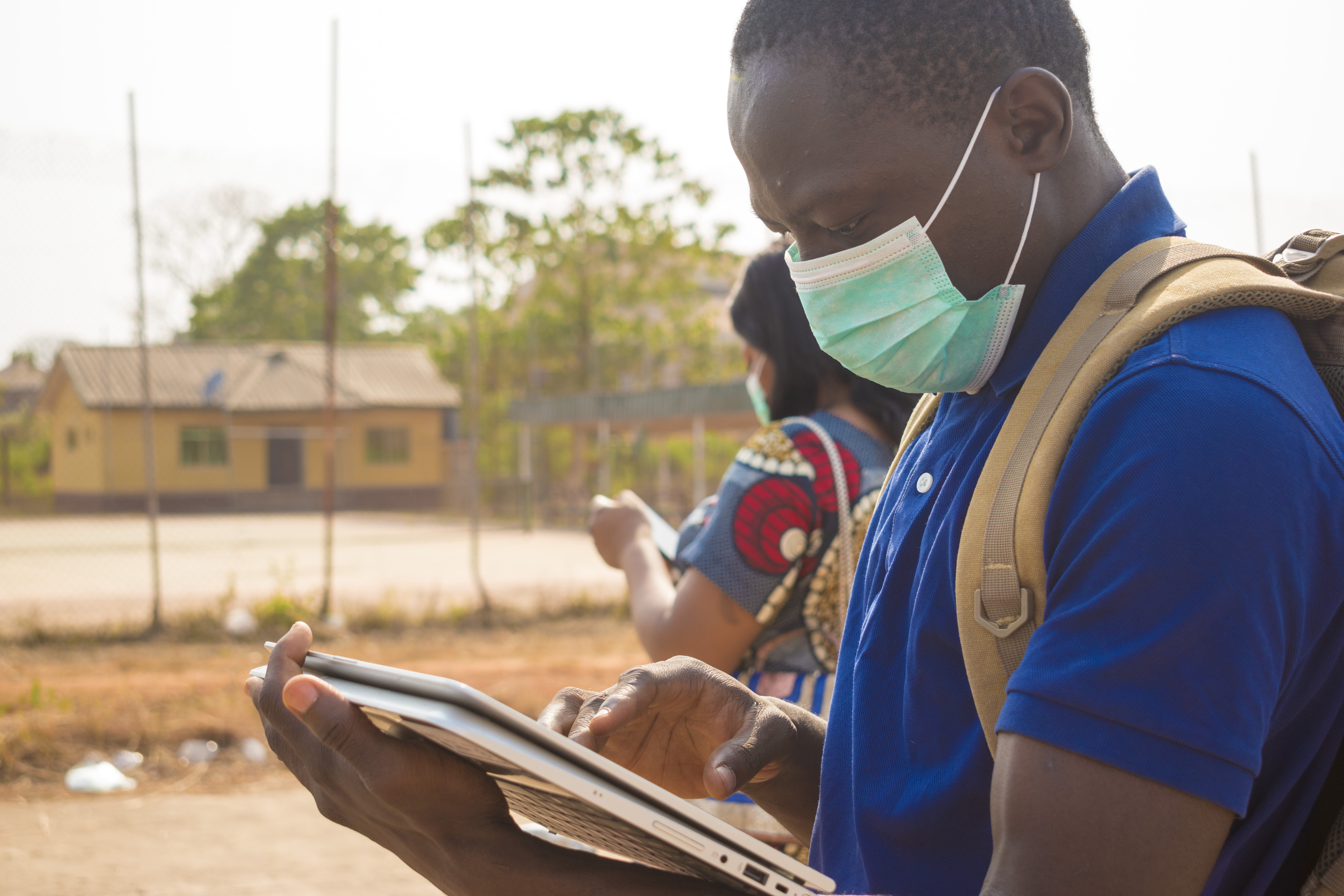Ghanaian Universities Reopen Amidst Increased COVID-19 Cases
In this blog, Fred Awaah, Lecturer at the University of Professional Studies, Ghana, highlights the impact of COVID-19 on higher education, based on findings from the University of Professional Studies and the National Open University of Nigeria.

Introduction
As at 30th January 2021, there have been 67,782 confirmed COVID-19 cases, 424 deaths and 61,843 recoveries recorded in Ghana. Ghana’s President, H. E. Nana Addo Danquah Akufo-Addo has consistently shared statistics on the number of cases recorded in the country across national media outlets. Over the last few weeks, he has admonished Ghanaians to continue to follow the precautionary measures; expressing resurgence in the number of cases over a short period.
These figures, have implications on higher education in the country; especially with the increasing COVID-19 cases that have attracted concerns nationally. However, universities are now open for lectures, integrating the hybrid teaching model as part of safety measures.
Teaching
There has been a new trend in teaching, especially at the University of Professional Studies - Accra. When school resumed, lecturers were each given protective microphone covers to prevent multiple usage on the same uncovered microphone. Additionally, each lecturer was given a personal duster and marker to avoid multiple people using the same. These measures have been put in place in ensuring the safety of faculty.
Lessons are also modelled in a manner that reduces direct student-teacher engagements. While some students are taught using the hybrid model (both online and face to face), other courses are strictly taught online. This has drastically reduced the number of students that usually will be present on campus at a time. This is aimed at limiting the spread of the disease amongst students.
A third initiative of the university is the introduction of water stands to aid faculty wash hands before and after lectures.
Student Hostels
Measures have been put in place to ensure reduced student numbers at the hostel. While first and final year students have been provided with hostel facilities, 2nd and 3rd year students are expected to study online or be present on campus without living in the hostels. This is geared at further preventing the spread of the virus.
What teachers think
Many teachers interviewed at the university were happy with the arrangements being put in place to limit the spread of the virus. Prior to the emergence of the COVID-19 pandemic, teachers shared microphones, dusters and markers. The university has created an avenue that facilitates the protection of teachers not only from COVID-19 but other contagious diseases through the introduction of personalized teaching aids. The online model further reduces the risk of teachers directly engaging with students; an act commended by many teachers. This model of teaching also comes with the advantage of not driving to campus, thus reducing fuel incurred costs – a lecturer opined. He however bemoans the lack of internet packages for teachers who would opt to teach from home.
What students think
The initial reactions of the first student interacted with was that, the online model affords her and her colleagues the opportunity to reduce the risks of getting infected with the virus.
Implications
In five earlier studies on student satisfaction at the National Open University of Nigeria, students recommended that, server/website connections should be improved; a social platform that can accommodate many students such as telegram, should be created to solve student complaints; need for a 24/7 established emergency contact and students' email used for communication in all instances (See, Consortium, (2020); Awaah (20202a); Awaah (2020b); Awaah (2020c); and Awaah, (2020d). The recommendations made by students at the national Open University of Nigeria, is replicable at the University of Professional Studies and other institutions within the region that traditionally were “brick and mortar” institutions but are now bending the online model.
Conclusion
Students’ needs are varied and complex within the online higher education space in Africa. A holistic understanding of such needs is necessary for meeting their expectations. To understanding such needs, education managers will need to constantly monitor and improve the online systems for the satisfaction of students and related stakeholders. The National Open University of Nigeria seem to be leading the investment in research on students’ needs assessment within the continent; a feat others may need to replicate, especial universities that are now migrating to the virtual teaching space.
-
References
Consortium, IR. (2020): Needs Assessment of NOUN Students: Towards Improving Their NOUN Experience: National Report: National Open University of Nigeria.
Awaah, F. (2020). Needs Assessment of NOUN Students: Towards Improving Their NOUN Experience: Report of the Mushin Study Centre: Abuja: National Open University of Nigeria.
Awaah, F. (2020). Needs Assessment of NOUN Students: Towards Improving Their NOUN Experience: Report of the Orie Awgu Study Centre: Abuja: National Open University of Nigeria.
Awaah, F. (2020). Needs Assessment of NOUN Students: Towards Improving Their NOUN Experience: Report of the Otan Ayegbaju Study Centre: Abuja: National Open University of Nigeria.
Awaah, F. (2020). Needs Assessment of NOUN Students: Towards Improving Their NOUN Experience: Report of the NURTW Study Centre: Abuja: National Open University of Nigeria.